|
3/22/2018 Poetry by Ra KayAt Least Ten Killed Your pupils- dark coals piercing through your eyes become black diamond bullets that backfire blowing your head open like a mine. “How does it feel,” I ask “to be so brilliantly wounded?” You say, “Excruciating,” then admit to that being the reason you collapse on anyone who enters. Conductive There’s a high cost for running electric blue veins through plastered bodies. When others hear the buzzing of the vacancy sign over your heart, I hear a tune from when you were once full, forfeiting space for proximity. You request to not be treaded on lightly, wanting to feel the weight of thought. You’re sure not to be careful for what you ask. Live wire. Cobalt Sparks. A tendency to catch fire all of a sudden, lighting up the nights, igniting everything around. My goodness, those electric blue veins convey your blinding repentance. You can’t help yourself. I can’t help myself – standing in the center of you heavy and doused in water. Waiting. Michelle In the A.M. Sister, You’re who I would be if I were truly uninhibited; if I let my run-ons tear through walls instead of punctuating them. It becomes apparent around you that we’re really underwater when you get naked and show your gills while most others swim to the surface to survive. I dove in after my reflection and found a likeness of me hidden in your pelvis. There’s more to it than astrology. I know you, whims and all, and can find your pleasure spots by pinpointing your wounds. As much as I tried to be separate, all of my perspectives were on the sides you were on, taking the tide wherever you went. What they think is fairy dust in your pocket is really salt, and the ocean can be heard by pressing an ear against your temple. The part of me that’ll always be joined to you envisions your hair blowing as you ride the pacific coast right on out into the cosmos as water currents rise to follow. Stable (for R.W.) I see you trying your best to remain in spite of the leaving that flows through you, having come from a people who were gifted in disappearing into thin air leaving only a garden scent; rooms smell like roses when you walk into them bearing thorns. Hallowed be the same by any other name, you’re still a god bloom in human form feeling every extent of yourself, and I see you trying to stay even when the spirit moves you to go. 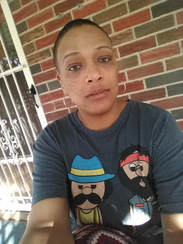 Bio: Ra Kay is an aspiring author from Kansas (relating more to “The Wiz” rather than plain ol’ “The Wizard of Oz”) with more than twenty years of journaling and writing poetry/prose under her belt. Unconventional to say the least, her imagination and pen crosses literary lines, creating a unique lyrical quality in her work. When she’s not writing, she’s thinking about it, reading, or engaging in an array of other activities that contribute to her inspiration.
Photo: Ruslan Onishchenko Ukraine’s On The Wane are holding a sonic mirror up to the times. Conflict, brutality, hypocrisy, lies, remember when this was something music wrapped its bruised voice around? On The Wane's guitarist Eugene Voitov certainly does. "Music is on the wane in our days, it isn’t the thing that can unite people around the world anymore," Voitov says. There is a raw and vital rage that crystallizes in the live wire sounds of Schism, the bands latest album. Much is done in the moment of the jam, piecing sounds together like a puzzle. A similar ethos to Throbbing Gristle's early experimentation of live, collaborative sonic soul searching. On The Wane, unlike their namesake, are most certainly not disappearing. A far cry from defeat, it's the loudest voice piecing the night in search for truth and a way out of the deadlock of a bankrupt culture. Beauty is ugliness walking the high wire between two worlds, the one that wants to forget and the one that wants to remember. On The Wane chooses the latter. The apocalypse may be in the rear view mirror, and like the saying goes, much closer than it appears. But while the world is still here, music that shreds its way into truth will always burn brightest. The point is to walk out of the shadows cast by such a light. To make music matter again, and, just maybe even the world. AHC: Can you tell us how On The Wane came to life, how you all first met and how the band pieces fell into place? Eugene: We met each other in March of 2014. We were still looking for a drummer at the time, like many other bands. At last, we found her and that day we decided that that day must be our birthday. AHC: What first drew you to music and what was your early musical environment like growing up? Were there pivotal songs for you back then that just floored you the moment you heard them? What are the works (albums) you could not possibly live without? Eugene: We wanted to play something like Sonic Youth stuff in their heyday. Or shoegaze music. We are very loud and noisy. Many young, new bands love those noisy bands from the 80s. We were no exception. Now we play more electronic cold music. AHC: What do you think makes for a good song, as you're writing and composing, is there a sudden moment when you know you've found the right mix, that perfect angle of light, so to speak? Eugene: Almost all of our songs are born in the jam. We don't have any recipe for a good song. We just play some tunes that stick in our heads and then we try to make a song with the parts of a puzzle. 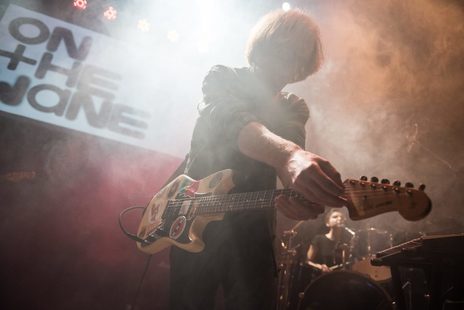
AHC: What are your fondest musical memories? In your house? In your neighborhood or town? On-tour, on-the-road?
Eugene: There are two types of these memories: memories about another’s music and memories about our own music. Best musical memories about another’s music are gigs of some my favorite bands, like PJ Harvey, Savages, The Cure, Pixies. And now we are waiting for a gig of Massive Attack in Kyiv. We love them. And best memories about our own music are some gigs too (live in Minsk in 2016 for example) and recording of our last album Schism. AHC: When you set out to write a song, how much does 'where the world is' currently (culturally, politically, otherwise) influence the kinds of stories you set out to tell? Eugene: We have some political lyrics about wars because it’s an important theme for our country. And we have some lyrics about homophobic problems, about religion, other social problems. But now we rather want to write songs about our personal experiences. AHC: How do you see the current contemporary musical landscape? Are there any mainstream or quasi-mainstream acts that you see carrying some subversive, raucous potential, or are most of it bland and repetitive from your perspective? Is the underground scene the only antidote? Eugene: We think that music is on the wane in our days. We play music because we like this process, but music isn’t the thing that can unite people around the world anymore, unfortunately. We like some modern mainstream bands, like St. Vincent, or Radiohead, but music doesn’t master people’s minds like it did in the 70s or 80s. 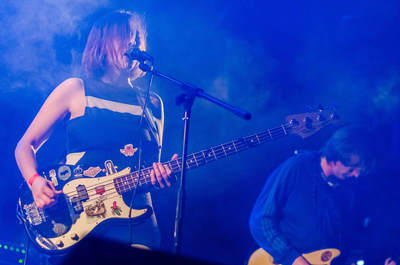
AHC: Do you have any words of advice or encouragement for other musicians and singer-songwriters out there who are just starting out and trying to find their voice and their way in this world, or who are maybe just wanting to throw up their hands and walk away completely? What are the kinds of things that you tell yourself when you begin to have doubts or are struggling with the creative process? Or what kinds of things have others told you that have helped push you past moments of self-doubt/creative blocks?
Eugene: I’d say “just practice”. You don’t need people, many instruments or much money to play your music. And we don’t really know how to cheer anyone up when they are having troubles with their band or creative process, because we are too pessimistic, but we are still doing our music, just because we love it. This is the single most important reason. AHC: Anything coming up for On The Wane in the near future or 2018? Eugene: We changed our second guitarist and drummer a month ago. Now we have new members in the band and some new plans. We want to record our new mainly electronic EP. And we hope to play live gigs in Europe. Keep up with On The Wane Website | Facebook | Bandcamp | YouTube | Instagram | Soundcloud 3/19/2018 Poetry by LE Francis
under the sun She says, same, to the wind that plays the spine of the fence-line, the hedge that moans along with the crows who will soon abandon it for a crimped metal roof. Literacy before the storm that speaks of streamers of siren shredded by wind & the pressure bottoming out in your head like a plug had been pulled. There was a song she once heard about a hitchhiker in a storm & it sounded like fatalism & so was this. Then there was a time when she stood in the rain & realized the drops were as big as her palms & when she raised her hands, she felt like a priestess twisting a knife in the back of some ancient god whispering, “cry, now.” But she once loved a man with a beard like Zeus, white as bone, & so she was moved to grief in her listening & when she heard the halting hum of your voice like the wind playing the planks she remembered again & another slant sound spun webs in her shadows. You say there’s nothing new and maybe you’re right yet for every ear that hears the same song and knows nothing there are as many building empires with the crows & the rain & the same song transposed into stories they’re waiting to tell. Study of a thing A thing as a heaviness, dense as the heart of a galaxy & deadlier than a window propped open to let the void in. Spun from fiber to thread & then woven; each string clinging to the next, & I can’t unravel it. A thing as a bodysuit as a lead-tip neuron; a thing as an elegance, implied purity in cloth too dark to stain. Seam in a nebula, as container of a thing that my language has blown to hell, & I can’t rebuild. My heart as a sword, with its many sharp surfaces & my blood as needles which tap through wide pipe veins, a study of a thing that may be nothing now, & certainly will end the same. Stupid flowers -inspired by "Plateful of our Dead" by Protest the Hero Recoil & discharge, another seed to the soil. It's the way we honor our mothers: be always reloading; be ever willing to massage the trigger as if it were a poem aimed at our ideal love; be always sleeping, dreaming up mechanisms for defense, for offense, for the rhythm that moves our prayers underground: Seed to soil. So, here's to our world without, here's to the solutions which answer to no one, & the gardens we plant without ever intending to see spring. Bio: LE Francis is a multiple medium procrastinator writing from the shadows of the Washington Cascades. Find her online at nocturnical.com. 3/18/2018 Poetry by Nina Belen Robins Thomas Hawk CC Jesus The therapist sits across from me crossed legs, dimples, frosted brown hair. He sits there after telling me a poem about Jesus as a scenario for therapy in which HE is Jesus, we’re walking along the beach. His footprints don’t show, but that doesn’t mean he doesn’t love me. This is our second session. You know, some would say God wants you to have bipolar children. How does your father feel? He has depression. Those are his genes. Surely this decision hurts him. My father says bipolar people are talented so people want to fuck us and that’s why we still exist. Jesus is silent. The clock on the wall reads that the session is over. Another egg jumps off the ledge where the tubes used to be, absorbed by the time I’ve left the building. McDonald’s The meds told me I needed 20 chicken nuggets so I got a few dollars together and walked to McDonald's. Here in NYC it’s open all night so I stand in line with the strung outs and the other kids. Mom says it’s fine when I walk around in the middle of the night. I’m 250 pounds so no one’ll bother me. The cop over at the table is trying to coax a lady out of her pile of runs on the seat and all 12 of us start to watch. Go home he says but her face falls further into her hamburger, brown spilling onto the seat. Three people leave and the cop continues. You can’t be here, where do you live? She nods into her Coke. The spill seeping into her holed up sneakers. I grab my nuggets and walk home. Lithium makes you care more about the hunger pangs than the environment. In the morning a couple sits at the shit-table inhaling coffee and processed egg. The cop back in his routine, the rest asleep. A scene a memory only for a dozen. A bleached table silently hiding a spill. Church Steps The woman who lives on the church steps waves hi to us every morning while we walk to kindergarten so we always wave back. Wild red curly hair, pink cheeks, red blanket draped across a bit of cardboard. Our school costs as much as college if you see the bill. But we wave. In 9th grade on vacations, I pack bags for the homeless with stale bagels and boxed juice, hang out with them during lunch. The summer before junior year I work at the local food pantry. I barely graduate. Five years later I’m living in a halfway house. It’s time for Christmas donations. Someone leaves a winter coat, it fits. Five years later I’m living one step up from a homeless shelter. I run out of money so I raid the pantry. Meal worms turn to moths. Then. Bedbugs. Everywhere. Because half of us are from jail or the shelter. At thanksgiving volunteers serve us donated turkey. The red head on the church steps dies of exposure. The kids from the high school across the street wave hello. I smile, Wave back. Pants Man On Broadway by Urban Outfitters the grey haired homeless man’s pants are by his ankles in the crosswalk, so we try to avoid the taxis turning the curve, but moreso this man’s rear end, round and visible as he is half bent and leaning toward the buildings and the whole crowd hurries past, heaving at the sight. Across the street are three girls smoking by the entrance with their straightened hair, designer sunglasses, 5 dollar coffees they got three blocks prior. Rocking those new pants they sell, the ones with the price tags charging you for holes, and not material. The ones that let your butt cheeks peer out from underneath the belt loops. We barely notice, while the men cross over to the shadow splayed out beneath the building. Drool at the sight. Puddle He is leaving. The apartment is empty except the air mattress. I still love you he says. We could be fated. We could be When Harry Met Sally in 5 years. You’ll be ready for children, then. You keep getting better. There’s a house in Missouri waiting for you. Two dogs, eventually our children. We can give them a paper route. They’ll play soccer. The air mattress keeps deflating. I can feel the floor beneath my back. I don’t want children. I don’t want dogs. Our future is a painting in a museum only one of us is in. Sunrise. He drives off. His future son and daughter safely buckled in the back seat. I am an empty womb, left on the floor. no husband, no children, no house and no dogs. The sun beats down and all the mothers begin to emerge. Open their jaws. Feast on my carcass. 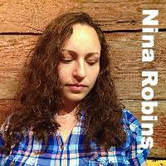 Bio: Nina Belen Robins is a three time national slam poet and author of the books of poems “Supermarket Diaries” and “A Bed With My Name on it”. She lives with her husband and cats and works in the bakery department of a supermarket. She spent much of her life in various institutions but has finally broken free and wants to normalize and destigmatize mental illness as best she can. 3/17/2018 Kintsugi by Amy Baskin Kintsugi —the art of repairing broken pottery with gold see everything perfect as already damaged. Next year's model already crashed and scratched, cultivating penicillin under the back seat from some long abandoned dairy product next to where the kids have kicked off their track shoes. Every new bespoke suit for what it really is— threadbare with body odor permeating each armpit, bacteria burrowing into the fabric like a stubborn badger. Each custom home on our street of dreams? Already demolished. The priceless print from my grandmother? Slashed by museum-grade glass. Everything you value will be nothing one day and everyone, too. imagine your heroes on their better days, as already villains. Whomever they cut with their sharp edges and lacerating tongues and tempers let them come to the surface. Each bloated corpse will astonish the villagers, but not me. The new is the old, the alive is the dead. When I look at you, on my better days, I see you as already gone. Nothing more than a memory, but the best one at that, no matter how mad I am at you in that moment. Will you see me that way, too? And at the same time, which is always now, help me anyhow to repair my chips with gold. Highlight and beautify each scar so I may hold all of the terrible beauty. We are marvelous in time. Drink our fearlessness, lift us up to our own mouths, sip the strength it takes to wake up each day and attempt to mend ourselves in our hopelessly broken places. 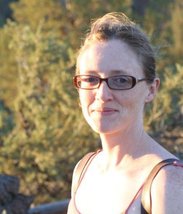 Bio: Amy Baskin’s work is featured in Friends Journal, Every Pigeon, apt, and more. She is a 2016 Willamette Writers Kay Snow Poetry award recipient for her poem “About Face.” She wrote this poem when she first read Sherman Alexie's apology to women he had harmed and mistreated. Writing helps her to make sense of human failure and to explore why she still loves the disappointing and the wounding among us, including herself. Maggie Not Margaret CC Dark Chocolate Cheesecake My mother baked me a dark chocolate cheesecake before slitting her wrists. She left it on my kitchen table while I was at work. She knew Emily and I had just split, so she came to have a look at my place on Friday afternoon. She ironed my laundry and folded my underwear, and then she washed the pile of dishes I had left in the sink. When I got home, I saw that she had put a small, light green card next to the cheesecake, where she wrote that she hoped I had a great day. I didn’t call her to thank her. I was tired. She would ask me questions. The cheesecake stood there, but I didn’t really look at it. I didn’t see the fine layer of hazelnut she had put between the dark cheesecake and the darker chocolate frosting. I didn’t see how carefully she had tried to level and smooth the surface of the cake to make it look perfect. She said chefs always got angry when food and plates bore the fingerprints of the person who had cooked the dish, but she couldn’t help leaving them. Still, I didn’t see her fingerprints on the porcelain plate decorated with bunnies, the one she had been using for years. Instead, I shoved half of the cake on a plastic plate and turned on the TV. I spent the night watching a documentary on the life of Amanda Knox. Then I went to the balcony and smoked a couple of cigarettes, singing some song by Lou Reed between gritted teeth. I went back inside, took three shots of Fireball, a sleeping pill and browsed Emily’s Instagram profile until I fell asleep, at five in the morning. The next day the phone was so loud that I screamed. When I answered, though, I shut the fuck up. My father told me mom had committed suicide. My father lived with his ex student in Pasadena, yet he knew about it before me. When I hung up, I crawled out of bed and went to the kitchen to pour me a glass of water. The sleeping pill had made me groggy. I saw the other half of the cheesecake on the table. My father had left my mother when I was twenty and I was too busy spending my nights in college, drinking shots of tequila from the bellies of blonde sorority girls. Emily was one of the blondes I met in my final year and we thought the fun times were over. We decided to move in together in Long Island once we graduated and both found a job for the same media company. Rent was expensive, and we thought moving in together was sort of okay. She left me a couple of years after. She went back with her high school sweetheart, who had just come back to New York from the military. I even saw him once, in front of our apartment, when he came to our place to help her move out. I called him dickhead and he shrugged, so I went back inside. My father had left my mother for one of his students, a blonde sorority girl too, and they moved to Pasadena when he got a better position there. They had a kid now. They went to church every Sunday, they said. My mother still lived in Yonkers. She hadn’t met anyone else. I had no idea how she spent her days and I honestly tried my best not to picture her in her house by herself, dusting the furniture or something. To come to my place, she had to spend at least twenty bucks for the Metro North. Then she had to hop on the subway at Grand Central Station and come all the way to Long Island. I told her not to do that. I could have driven her home, but she didn’t want to bother me. When I used to go to her place to have lunch, everything was about me. She didn’t tell me about her life. I think I asked, most of the time, but maybe I didn’t really listen. How is work. How is Emily. Can I meet her. What happened to that friend of yours with the mole on his lip. Is he in accounting. I went shopping and bought a new type of pasta for you, Do you like this new lasagna. It’s a new recipe I saw on Masterchef. I answered her questions calmly, waiting for the lunch to be over. As I drank the last sip of coffee she had made for me, I used to get up and go out, ready to keep on living my life. I thought she would clean the dishes, place them slowly in the cupboards, the cups, the plates, the forks, the spoons and the knives. I could imagine her drying them carefully with a cloth. I could never imagine her slitting her wrists. At the funeral, I saw Emily. She didn’t bring Dickhead. She kissed me on the cheek and I started crying. She was breathing and touching me and smiling. She was not still, framed in a picture on Instagram. I wanted to hug her. I didn’t, but she did. She told me that if I needed to talk, we could go somewhere before the reception started. I said I was good. So I smiled at my mother’s relatives friends colleagues and people I didn’t fucking know. No one asked why my mother committed suicide. I couldn’t have given them an answer anyway. I greeted my father and his new wife, shook her hand and she smiled politely. They bought all the food for the reception. Shrimp, crab cakes, even lobster. I didn’t eat much, though. All I could think of was the half-eaten dark chocolate cheesecake, sitting alone on my kitchen table. 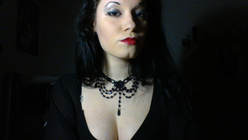 Bio: Rachele Salvini is an Italian student of Creative Writing and a first-year PhD candidate at Oklahoma State University. She writes both in Italian and in English, and her work has been published in several magazines such as Takahe Magazine, The Fem Literary Magazine, The Machinery, and others. She is an Editorial Assistant for Cimarron Review and she has been an editor and translator for The Wells Street Journal. Lead singer Vanessa Briscoe Hay brings the crooning, the raw. Punk with a palette. Punk with grain, and composition. Punk with texture and tone. Their sound tastes like rust. Fingers dug deep inside the palm. Their opening track Feast on my Heart is an undercurrent of rippled squalls. A guttural humming of honey drip. There’s a slight Devo-ish quality in their buzz, with a heavy helping of Suburban Lawns. Precaution is a hive of bees, stinging through chords and melodies. A cheerleader anthem for the damned. A crooked dance that aligns. Ksets off sunsets across the lids, a post-apocalyptic roundness that births indulgent notes. Leaving us full, but starved for more. It’s hard to not sway like so many waves on the hips. Like so many moths to a flame. Crazy is a love song disguised as sandpaper. An epic bird view of a song. Great heights live in-between those chords. Something heard but not touched. Love also lives there, if only, temporarily. These are genuine musicians. You can feel the calloused fingers, the decades of practice. You can feel the vastness of small rooms in their sound. The vastness of endurance and integrity. They smell of time and space and truth. A highway of old roads travelled, of grieved directions and a fire that never went out. Keep up with Pylon Reenactment Society Website | Facebook | Twitter | Soundcloud | YouTube | Instagram | Bandcamp 3/14/2018 Poetry by Jeri Thompson Daniel Oines CC Every Broken Girl Every broken girl is looking for her daddy May hell’s darkest shades shadow the father who taught his little girl the way to his heart is through his pants. Wesley in the Mental Ward He’s William Powell without tux and tie. He’s Peter Pan, straight from jail, an ex-junkie, wanting to make things right. He’s Icarus flirting with the sun. Mostly, he’s Linus, clutching his yellow blanket. My hearts drops to my knees looking into his turbulent eyes. I jerk my gaze away. I must. What would he think, this 30 year-old, if he knew I wanted to save him? My heart couldn’t survive the fall from his heights, or crawl from the depth of his trenches. He’s used to velvet skin, while mine is all rust and wrinkle. Grandma's Attic I would climb up the stairs that Groaned like an old lady rising. The stairs were narrow, even for a chubby 12 year-old who was used to sneaking about in shadows. It was the finest cocoon of the senses -- freshly cut oregano, basil, thyme. The low ceiling, filled with hanging copper pots, bowls, colanders, spoons and a spatula-- a white, rubber spatula that tasted like vanilla. The sweetness of that vanilla spatula was haunted with the ghosts of birthdays, Xmas date cookies, cannoli, crème puffs, cakes from scratch, heaping with vanilla frosting. To a kid with a growing eating disorder, comfort came in flavors and vanilla was love. Grandma’s attic was filled with the projects and to-do lists of a 1950s grandmother -- Grandpa’s zipper repair, Aunt Mary’s wedding-shower dress hem. Patterns and material, sewing projects hung on the walls with red-yellow-blue threads next to the Sears & Roebuck antique sewing machine where I learned to sew. That was before we relocated to California and I became another latch-key kid. I hide inside the footage of closets and attics, holding secrets in time's tight crawl. Home was there, safety was defined in her attic. I wrapped myself in the woof and warp of Grandma and the spatula tasting of vanilla. When we got home, the only thing to soothe the sorrow of love left behind was the memory of that spatula that tasted of vanilla, and vanilla is love. 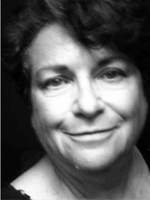 Bio: Jeri Thompson is a poet living and writing in Long Beach, Ca and has her degree from CSULB. She has appeared in numerous publications and has her favorite poetry home, here. Her goal is to get into Rattle one day. You can find her work in Chiron Review, The Fox Poetry Box, Carnival Lit, Silver Birch Press and Red light lit, among others she can’t remember right now. El Malecón, Havana, Cuba 🇨🇺 August 2017. Maria Belford aims her eye through the maze of the ordinary and the everyday not in order to speak for the subjects who inhabit these spaces, but in an attempt to listen through the lens to the stories singing out from the heart of their own precious lives. "I think so much art- even beyond photography, is too performative and too focused on the 'extraordinary' narrative of marginalized groups." While one's vision will always be subjectively one's own, Belford aims to lean in to the rough and tumble spaces, capturing as authentically as possible the living poetry of lives that are never without their own story. "Everyone, here, has the vision, what they lack is the method." Every person's life is singing some deep inner song and that cannot be written or sung for them. A voice comes through regardless the place one wants to put it. Perhaps some art wants to speak for others so as to protect themselves from what those voices really have to say. Belford believes the opposite is called for. Called for might be the wrong word, it is the thing that already inheres in every marginalized and non-marginalized life, a unique and utterly authentic story-song. Why music? Because every life is composed from a unique cadence and groove, everybody knows what they've seen and can speak what they've seen in the forest of signs. Documenting the multi-faceted stories of the misunderstood, not altering, not speaking for them, but leaning in, listening closely to what's already singing out. Can you hear it? Turn down the volume of your eyes and look closer. AHC: What has your own personal evolution towards a life in art & photography been like, are there a series of moments you can recall where this path, this calling, began to become the one clearly marked for you? Maria: I come from a long lineage of artists and creatives so there were always influences and inspirations around me from a young age that initially sparked my interest in the arts. I also spent a lot of time with my grandfather looking at National Geographic magazines, and that's where my initial interest in photojournalism really started. I've always been interested in storytelling and documentation of life's moments- and that combined with my love for travel really started my interest in photography specifically, and helped me realize my talent and passion. When I moved to New York in the Fall of 2011, one of the first exhibits I saw was a street photography exhibit at the Jewish Museum called The Radical Camera. That was really an 'ah-ha' moment for me where I really made the decision that pursuing photography professionally was what I wanted - and needed- to do. Jackson Heights, Queens New York 🇺🇸 2014. AHC: Could you explore and expand on some of the motivating ideas at work in your photography and the process behind the making of them? Creating, as you describe it, a connection and commonality with the subjects depicted, has me thinking about the small and large ways in which we fail to live up to this in our daily lives, missing the basic human commonality by honing in on the differences, do you hope, in part, that taking in life, as you do through your lens, perhaps helps, in some way, to create a bridge that crosses over into our daily ways of seeing the world and the most marginalized and vulnerable in it? Maria: Honestly I think so much art- even beyond photography- especially when it is created by someone who is not directly aligned with the subjects themselves, is too performative and too focused on the 'extraordinary' narrative of marginalized groups. My work aims to document the everyday, the seemingly 'unimportant', the average, the mediocre- in the most authentic way possible. It is through my lens and therefore still through my vision but I really aim to ensure that the subjects are still expressing their own narratives and stories through my work. Fulton Street, Cypress Hills, Brooklyn 🇺🇸 2015. AHC: Who are some of your artistic influences? Is there anyone outside of the art/photography world who has had a huge impact on you and your work or who just generally inspire you on some level, writers, filmmakers, comedians, musicians, teachers/mentors, family members? Maria: In terms of photographers, two that I follow closely and am consistently impressed and inspired by are Newsha Tavakolian and LaToya Ruby Frazier. I'm also influenced by a lot of writers- including the work of Edwidge Danticat and poets like Anna Akhmatova, Nayyirah Waheed, Suheir Hammad and Eve Ewing. I'm lucky enough to be surrounded by friends and family members who are all so incredibly talented creatively across a variety of mediums including music, writing, fine arts, filmmaking and comedy and the energy and passion that they bring to their own work is a constant inspiration for me. Havana, Cuba 🇨🇺 August 2017. AHC: What do you consider, personally, to be the most sacred and enduring aspects of art? How does it enrich our world and our cultural memory? How has it enriched or altered your own life? In your opinion, what does art, at its finest moments, bring into the world that would otherwise leave us more impoverished without it? I know you've described film and photography as a medium of catharsis, is this, for you, one of the defining powers of art, to shoulder some of our burdens, to tap into those repressed emotional, psychological, physical wounds, to give expression and voice to what aches in us, to be heard, seen, understood? Maria: Nina Simone once said "An artist's duty, as far as I'm concerned, is to reflect the times"- and I am in complete agreement with that and find it to be one of the most enriching and important responsibilities as an artist. I aim to capture moments that would be otherwise fleeting, experiences that are incredibly life changing for better or worse, and places and people before they are changed or displaced. Most of my work is about documenting the stories of others who are often misunderstood or misrepresented. In my next phases of work I hope to start reflecting on my own emotions and experiences and using my work as a way to better understand myself. Astoria, Queens New York 🇺🇸 2014. AHC: What is the first work of art you encountered that took your breath away, that lit a fire in you? Maria: Since I've always been surrounded by art and artists in my personal life, through my education and professionally- I don't know that there was one singular piece of art that ignited my passion for creativity. I think one of the most recent exhibits that really blew me away was Kehinde Wiley's A New Republic in 2015 at the Brooklyn Museum. Havana, Cuba 🇨🇺 August 2017. AHC: Do you have any words of advice or encouragement for young artists and other creatives who are experiencing self-doubt in their art, frustration or blocks? What are the types of things that have helped you to move past moments where you may have become stuck creatively? Maria: My advice is to not feel stuck in the "should" or "supposed to" mindset when it comes to creating a certain type of art. Let go of your expectations. When I walk out with my camera, I may have a focus in mind but I don't start shooting with the expectation that I'm going to get a specific photo or capture a perfect moment. Often times the best work I've produced has come out of a casual, un-focused photographic session. Be authentic, and understand that you're always going to be learning and never going to have it completely figured out. That's the beauty in creating. Fulton Street, Brooklyn, New York 🇺🇸 June 2015
AHC: Do you have any upcoming exhibits or new projects you'd like to tell people about? Maria: I'm currently working on a project in my own neighborhood of Cypress Hills, Brooklyn which is a photography and documentary film project exploring the lives of the Latinx community here. Stay tuned! For more visit www.mariabelford.com/ All images © Maria Belford 3/13/2018 Laundry is Easy by John Muth Don Harder CC Laundry is Easy I do laundry for my parents when mom is in the hospital because dad never learned and he never wears the same pair of sweatpants twice. There is not much else to do. I cannot shrink the tumor nestled like a Japanese beetle on her pancreas. I cannot find the words to reassure my father everything will turn out right and mom will be that 5 or 7% they say make it to five years. Love and sadness are hard to express vulnerability is uncomfortable but laundry is easy. A machine does most of the work and in only a couple of hours what was once dirty comes out clean and sweet-smelling ready to be folded and put away like a delusional feeling of accomplishment. 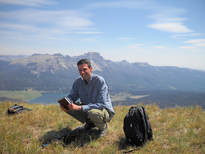 Bio: John Muth was born and raised in central New Jersey. For the last seventeen years, he has been an academic advisor, working for Rutgers University. His two collections, A Love for Lavender Dragons and Reassure the Phoenix were published by Aldrich Press and can be found on Amazon.com. |
AuthorWrite something about yourself. No need to be fancy, just an overview. Archives
April 2024
Categories |
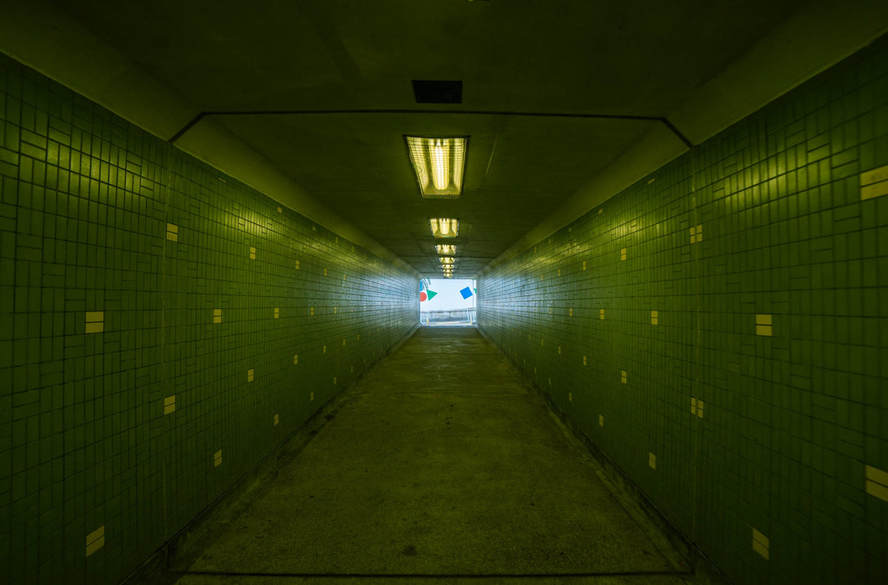
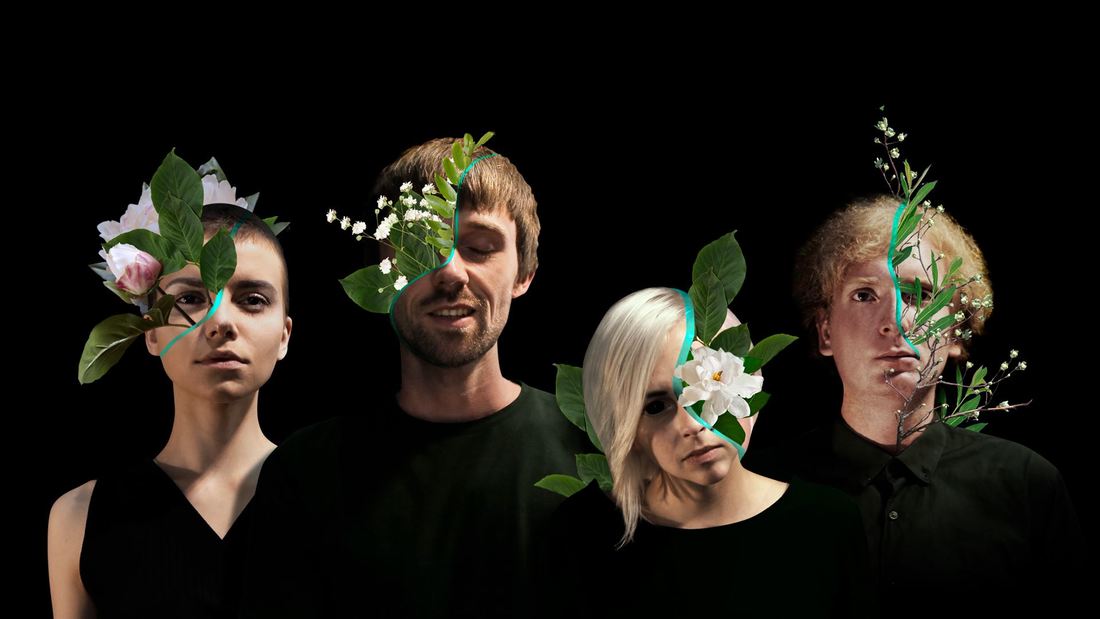
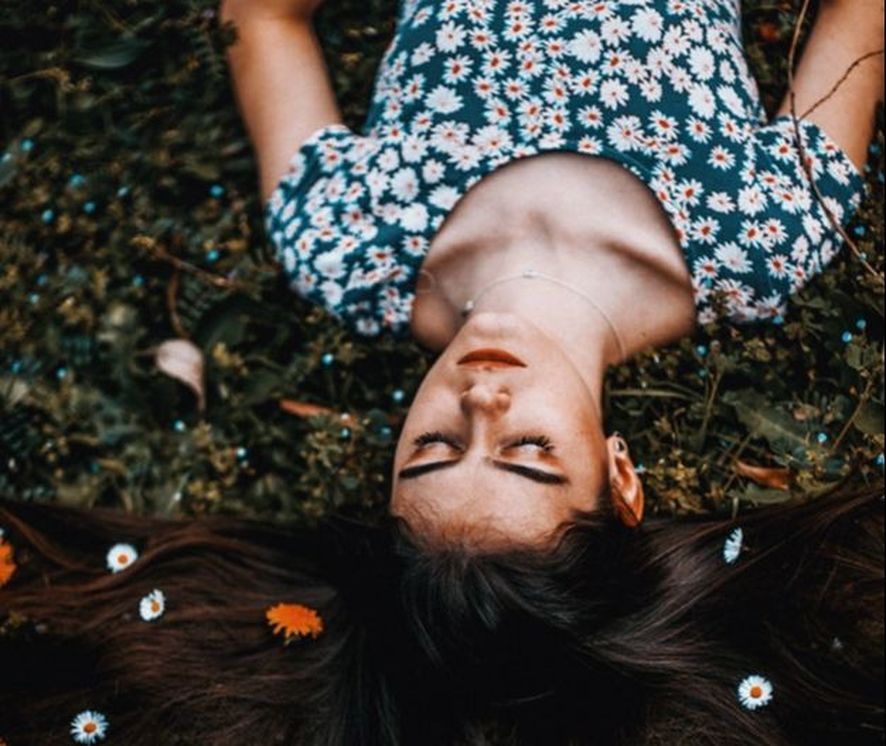
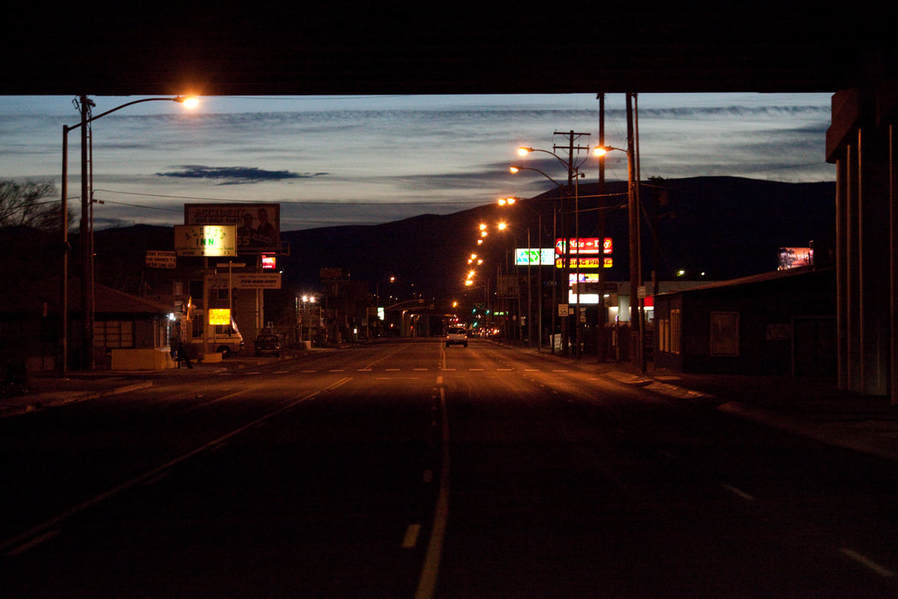
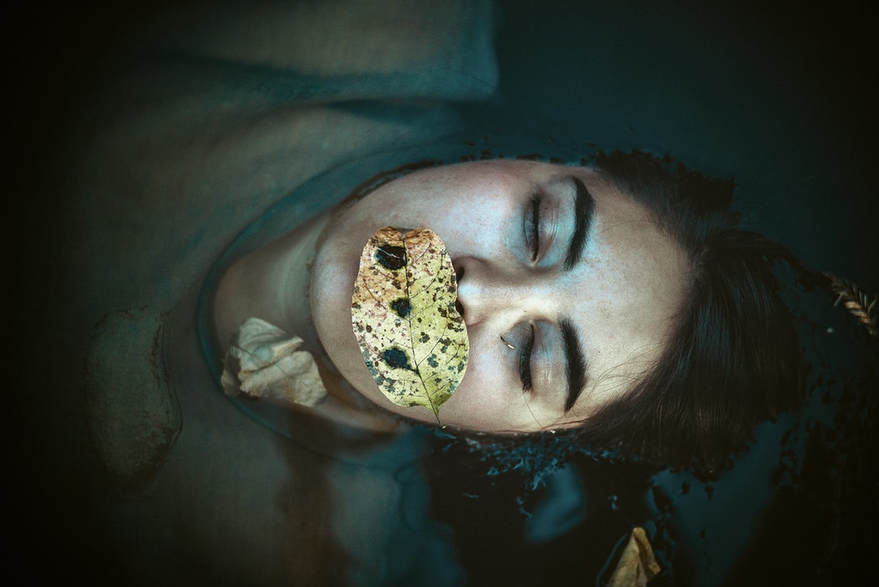
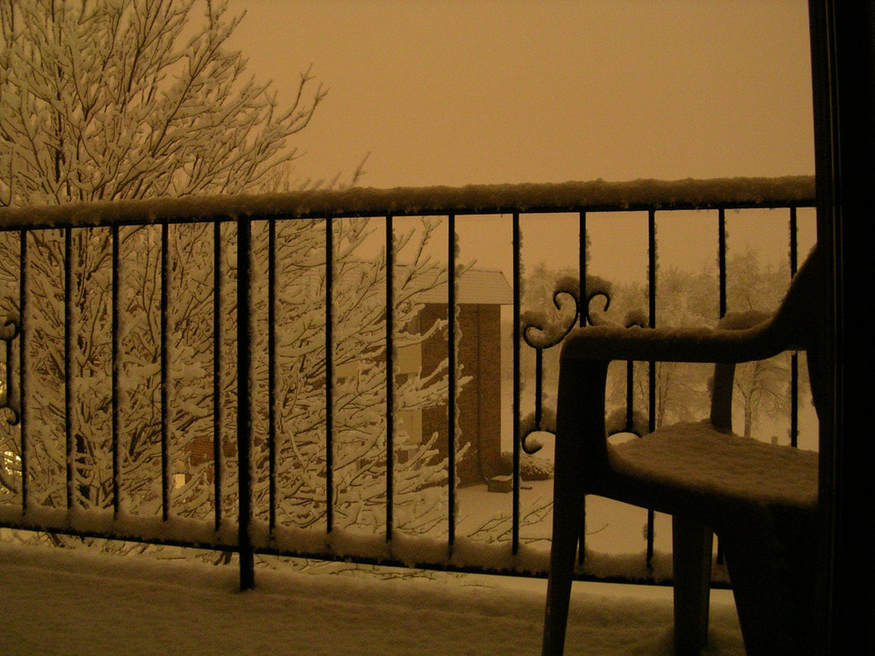
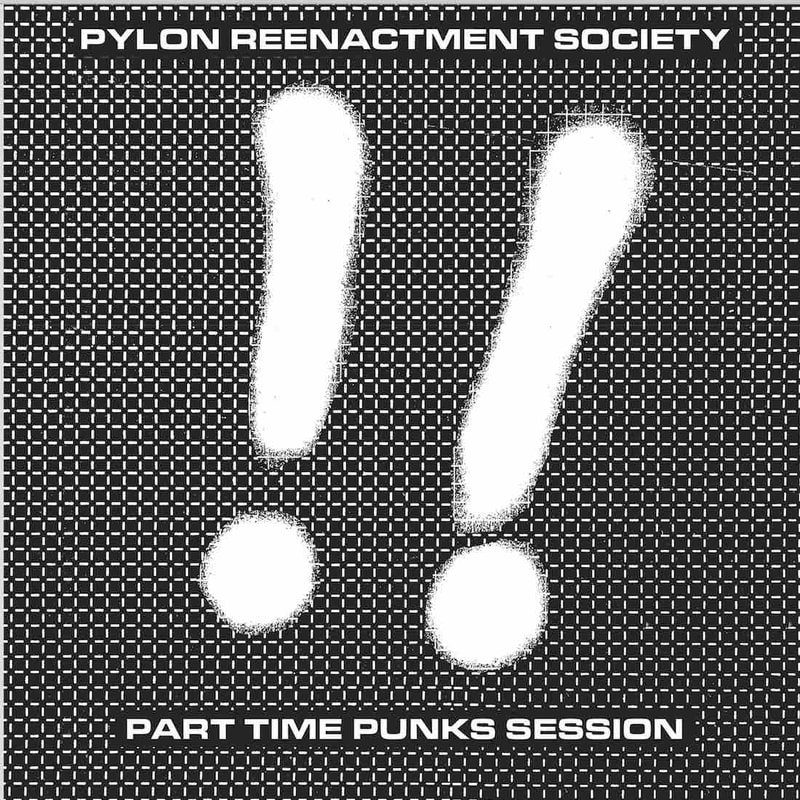
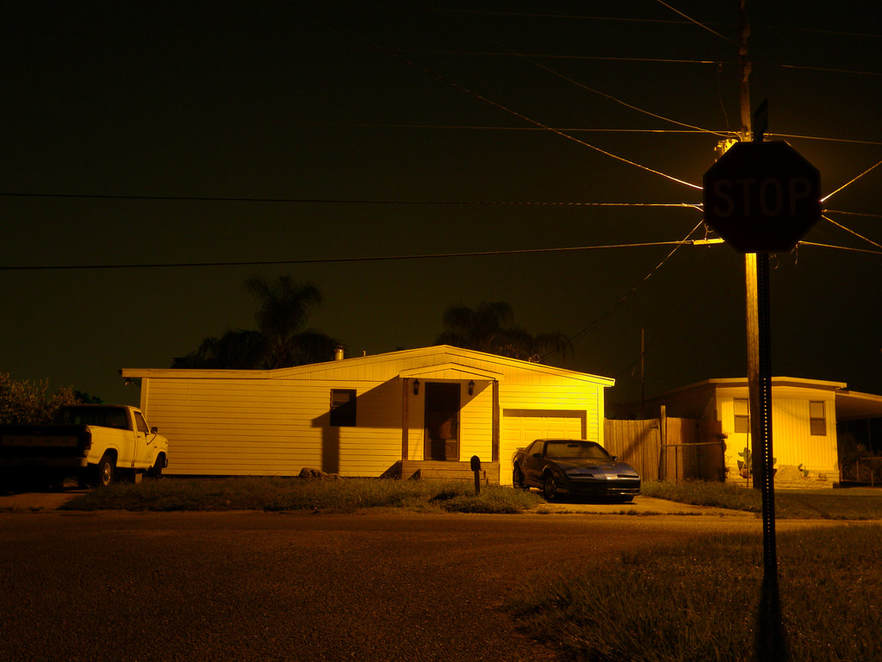
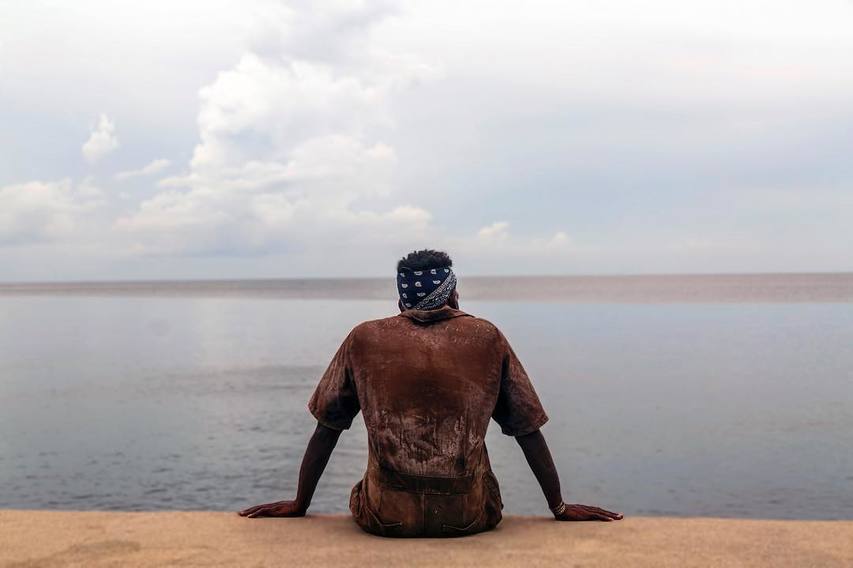
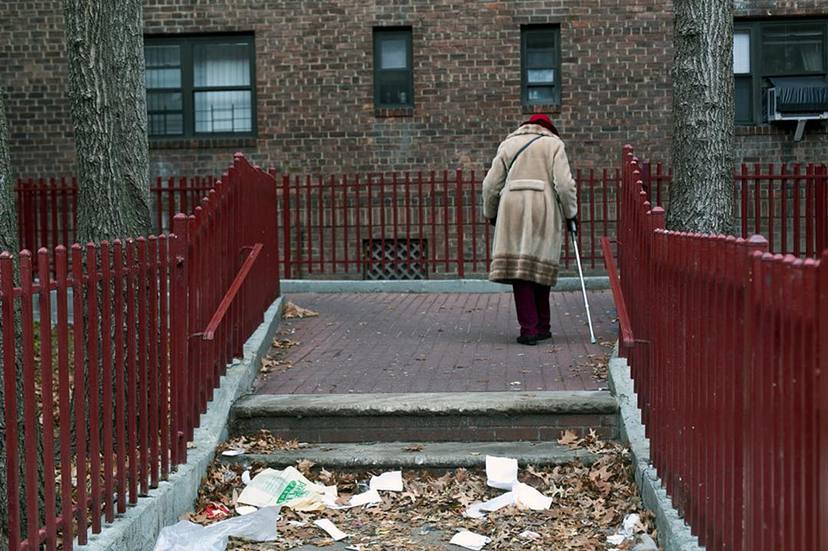
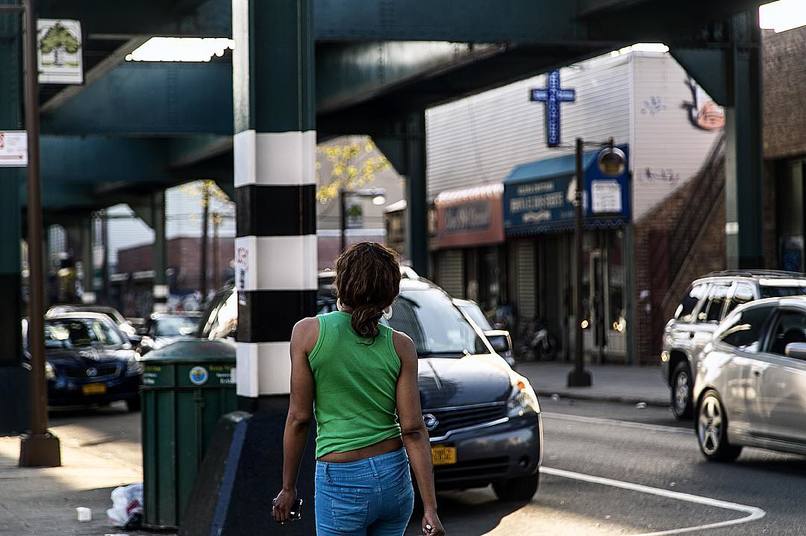
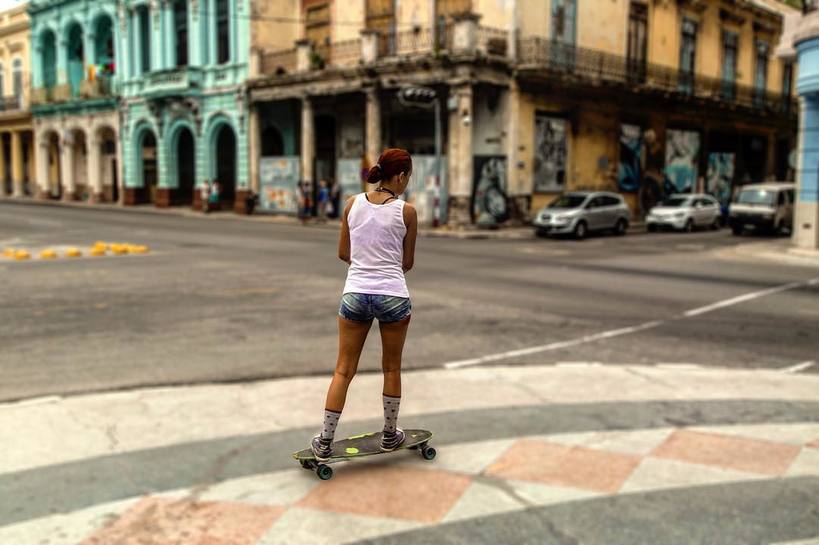
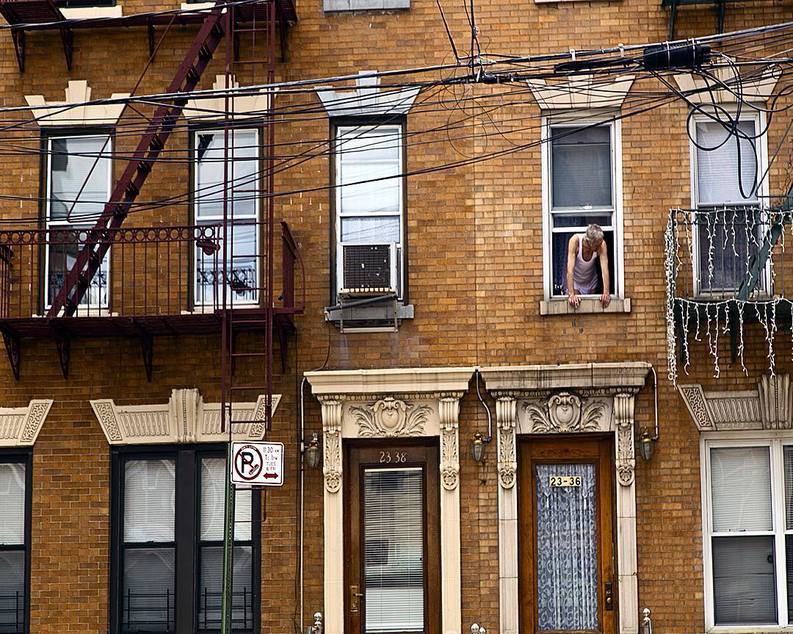
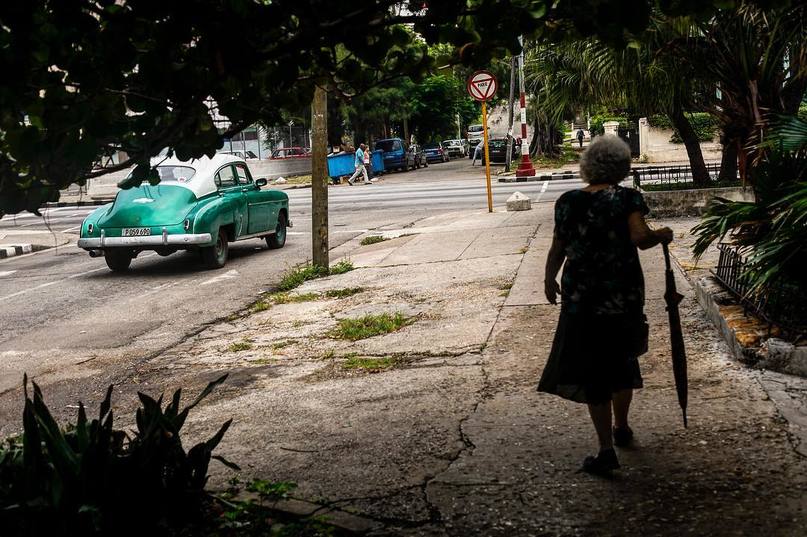
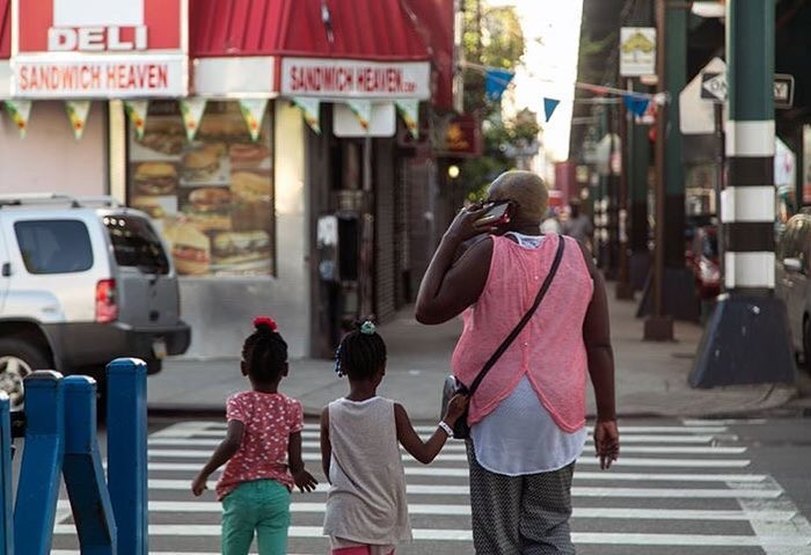
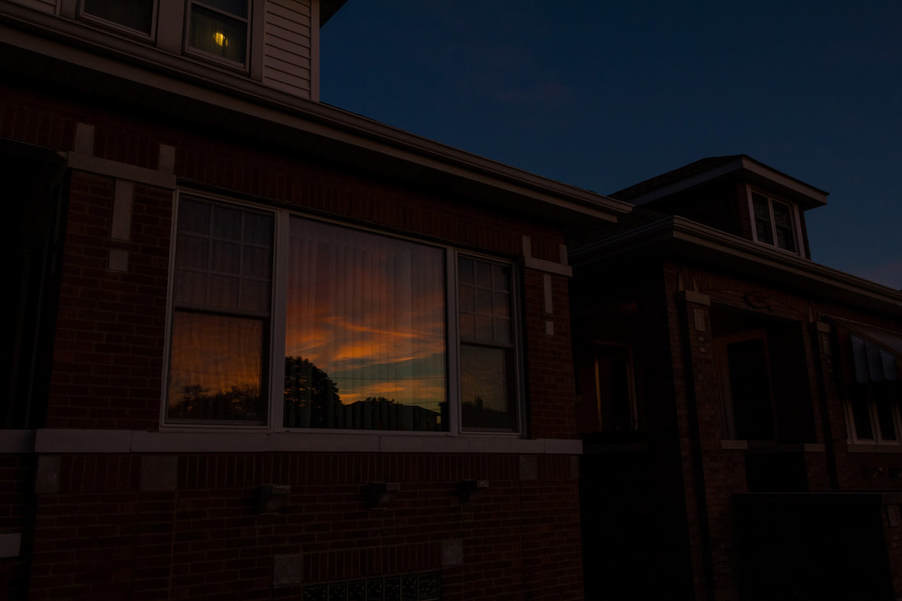
 RSS Feed
RSS Feed
